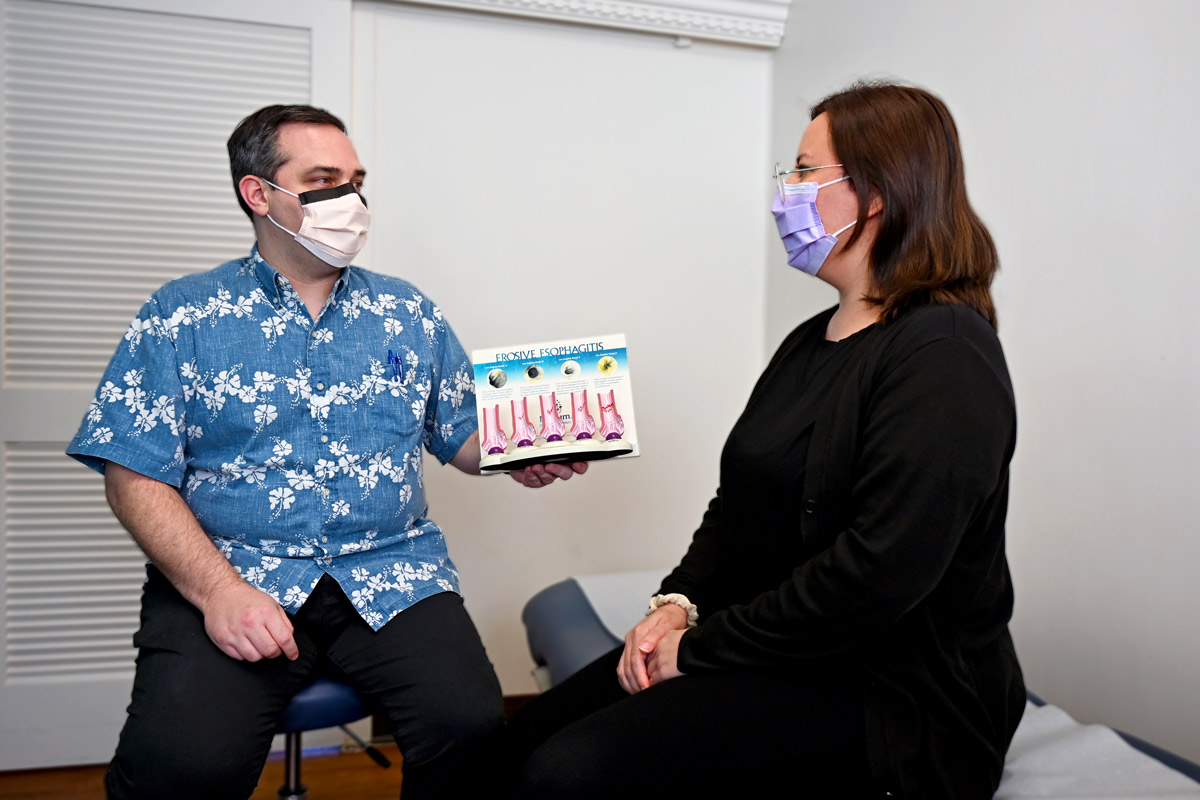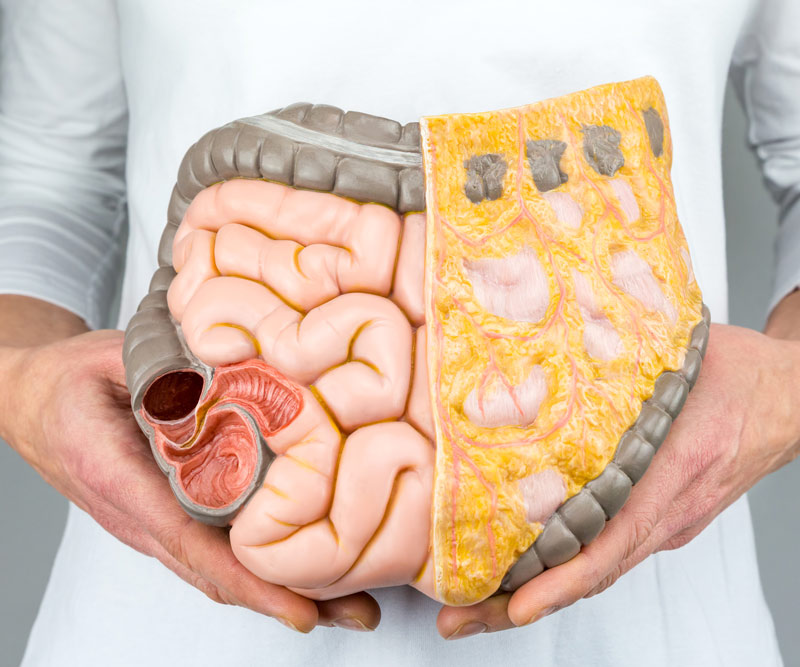
Early Detection of Colon Cancer is Key
March marks Colorectal Cancer Awareness Month. While the number of people overall being diagnosed with colorectal cancer is decreasing in the United States, there recently has been an increase of cases in younger people between the ages of 20 and 54 years.
In this article, Dr. Timothy Swindoll – a doctor of osteopathic medicine and Hawaii Pacific Health chief of gastroenterology – discusses in detail the diagnosis and treatment of colorectal cancer.
What do you do as a gastroenterologist?
As a gastroenterologist, I diagnose and treat problems with the intestinal tract from the esophagus to the anus. I also diagnose and treat disorders of the liver and pancreas. In addition to treating conditions in these areas I am also dedicated to cancer prevention – specifically colon cancer prevention.
What types of conditions do you typically see and what are the standard treatments?
One of the main goals as a gastroenterologist isn’t to treat a condition but to prevent a condition. Colon cancer is the third leading cancer in the U.S. and is preventable. We do a procedure called a colonoscopy that can remove precancerous growths called colon polyps before they become cancer. There are other tests to screen for colon cancer – CT scans and stool-based testing – and we find whichever option is best for our patient.
We treat a number of other conditions as well. One of the most common is heartburn, also known as gastroesophageal reflux disease (GERD) or acid reflux.
One condition we treat that often patients are embarrassed to ask about is fecal incontinence and problems with bowel movements. There are excellent tests and treatments – nonsurgical – for this condition. So do not be afraid to ask your primary care physician or gastroenterologist about this.
Recently the screening guidelines for colorectal cancer changed. What do people need to know about this?
This is an important change to note. The recommended age to begin getting a screening colonoscopy just recently changed to 45 years instead of 50. Over the last decade we have seen a noticeable increase in young people with colon cancer. No one really knows why this is happening. Once you undergo your first colonoscopy it becomes an ongoing screening to help detect colon cancer early.
If your mother, father, brother or sister have colon cancer, especially before the age of 60, you should have your colonoscopy at age 40 or 10 years prior to the age of their diagnosis, whichever is younger.
What are the symptoms of colorectal cancer?
Often colon cancer is silent, meaning there are no visible symptoms, which is why colon cancer prevention such as colonoscopies are so important. Some signs and symptoms of colon cancer, however, include blood in the stool, a change in bowel habits and low blood counts, especially if there is low iron level in the blood. It is important to note that these symptoms don’t necessarily mean you have colon cancer, but they do need to be evaluated by your physician.
How key is early diagnosis when it comes to surviving colorectal cancer?
Colon cancer is curable if it is found at an early stage – stages 1, 2 or 3 – and people who have had colon cancer can lead a normal life. Stage 4 is treatable and many patients can live more than a decade with a good quality of life. The earlier the stage, the easier the treatment.
Treatment options have improved over the years and, while no treatment is easy, they certainly are not as toxic as they have been in the past. In fact, sometimes removing a cancerous polyp during a colonoscopy is curative of the colon cancer without any further treatment.
One myth is that if you have colon cancer you have to have a colostomy – a bag attached to your abdomen to collect your waste after surgery. While this is certainly a possibility, more often than not you can use the toilet normally after colon cancer treatment. I have had patients avoid getting a colonoscopy because they thought an ostomy was their only option.
Is there anything else you’d like to add?
I think the main thing I would like to address is the embarrassment surrounding the conditions we treat. People don’t like to talk about bowel movements. They don’t like other people to see their butts. Because of this they don’t talk about bothersome symptoms such as fecal incontinence, rectal bleeding, etc.
If we can be more open and honest about these things we can improve peoples’ quality of lives and we can save lives. I guarantee there is little most people can say to shock or embarrass physicians like myself.
This article was first featured in the March 29, 2023, issue of MidWeek as a part of the "Dr. in the House" series. See the full publication here.
Published on: March 29, 2023




